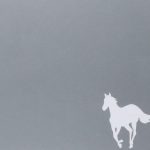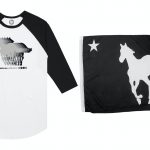December 22, 1997 Pollstar Interview www.deftonesworld.com YOU MAY NOT HEARthe Deftones onmainstream radio or see the band onprime-time MTV, but somewhere deep inthe pits of abrasive heavy metal rock, there is a success story building. The Sacramento-based band has spent most of its time on the road since signing with Maverick Records in 1994 and […]
“Guitar World” – October, 1997 // Stef Interviewed
Guitar World October 1997 By Jen Wiederhorn www.deftonesworld.com ********************* The Deftones’ Stephen Carpenter slams the accelerator of his spiffy rental car and passes a pair of pokey commuters. Drummer Abe Cunningham and I hold on for our lives as the car lurches forward. “People in Seattle don’t know how to fucking drive,” the guitarist growls […]
“Plow Magazine” – 1997 // Chino Interviewed
PLOW snowboarding magazine March 1997 wwww.deftonesworld.com “The Deftones” by Bob Hernandez Their music has been described as being situated somewhere between industrial, hard-core and rap. They’ve played with seemingly every band out there today, everyone from Anthrax to L7. Kiss to No Doubt. And despite being ignored for the most pat by MTV and mainstream […]
“Drummer Magazine” – 1997 // Abe Interviewed
Abe Cunningham of the Deftones: By Matt Peiken. Of Heavy music were like fine wine, 1997 would go down as a sweet vintage. Let’s take an inventory: Metallica “Re-loaded”, Pantera kicked out live brutality, Korn and Tool headlined Lollopalooza, and the Ozzfesttour pushed up & comers like Coal Chamber, Powerman 5000, and Machine Head into […]
“Undecover” – 1997 // Abe Interviewed
The Mighty Mighty Deftones By Paul Cashmere Tranquil Sacramento, California is the home of possibly the world’s heaviest band, The Deftones. The band is made up of two Mexicans, a Chinese guy and a white dude, all with common musical tastes. The mutual friends formed around 10 years ago and were one for the first […]
“Metal Hammer” – 1997 // Chino and Max Interviewed
Metal Hammer, September 1997 Chino and Max comments about “HEADUP”… “Then of course, there¹s the track Deftones did with their close pal Max Cavalera. Moreno explains the genisis of that special tune: ³It¹s a crazy ass song. We all sat around and wrote in the studio and jammed some stuff and came out with a […]
“Bass Player” – 1997 // Chi Interviewed
BASS Player May 1997 BASS Notes Chi Cheng, The Zen of Metal www.deftonesworld.com By Thomas Wictor It’s hard to put the Deftones’ Chi Cheng into a neat little box – just as his band itself defies categorization. Ostensibly a heavy metal outfit, the quartet from Sacramento, California, is no clutch of head-banging, oafish thrashers. Lead […]



